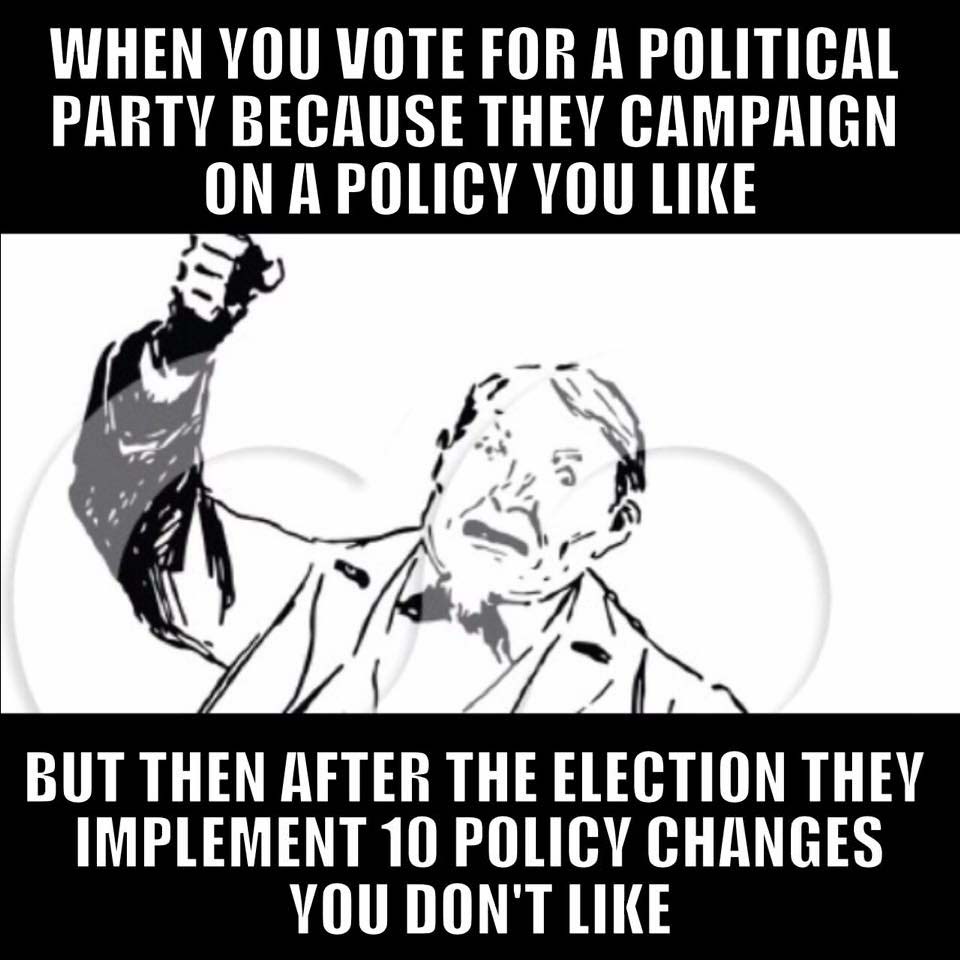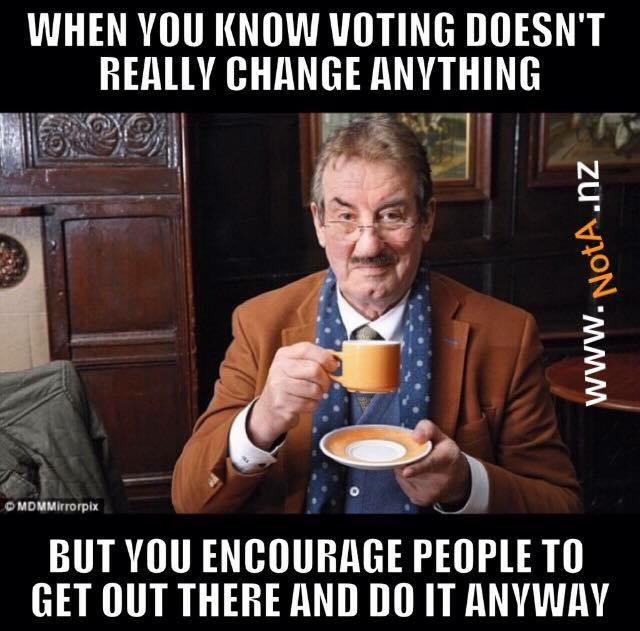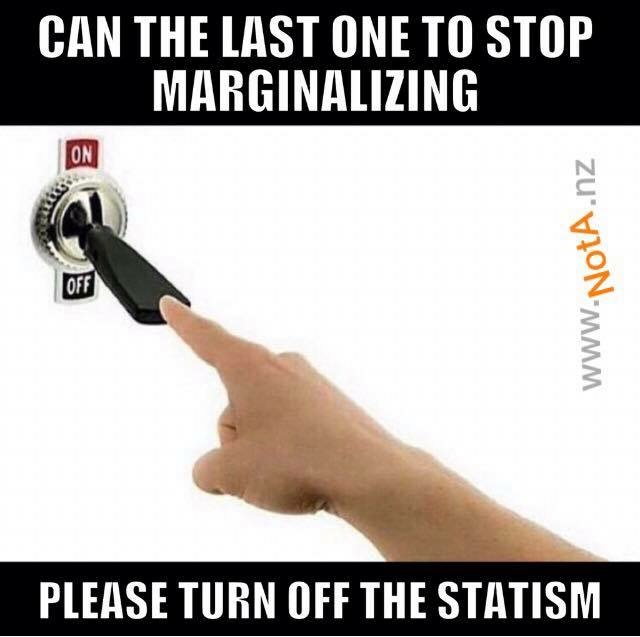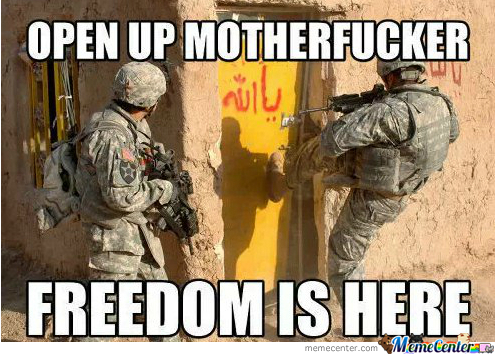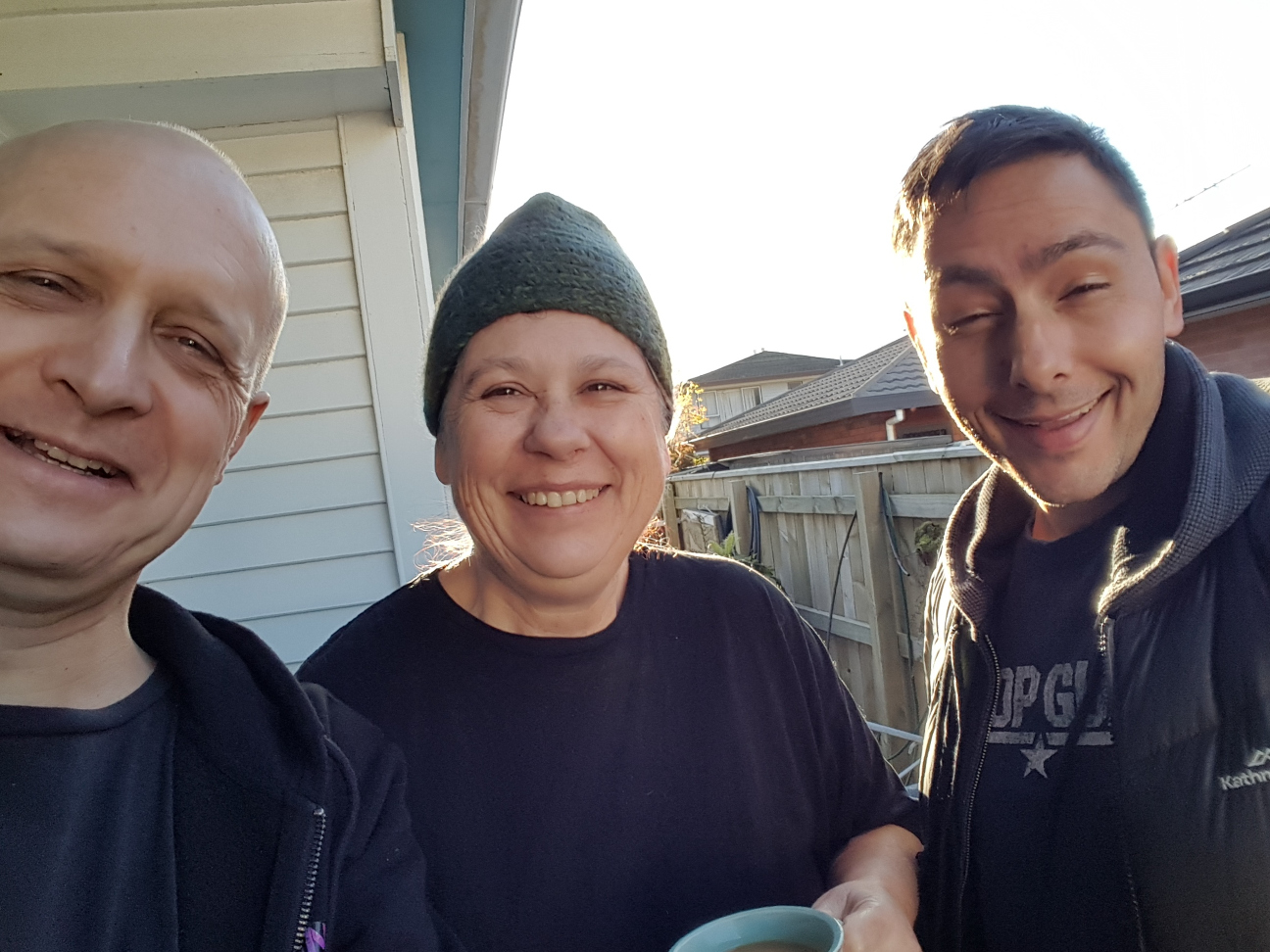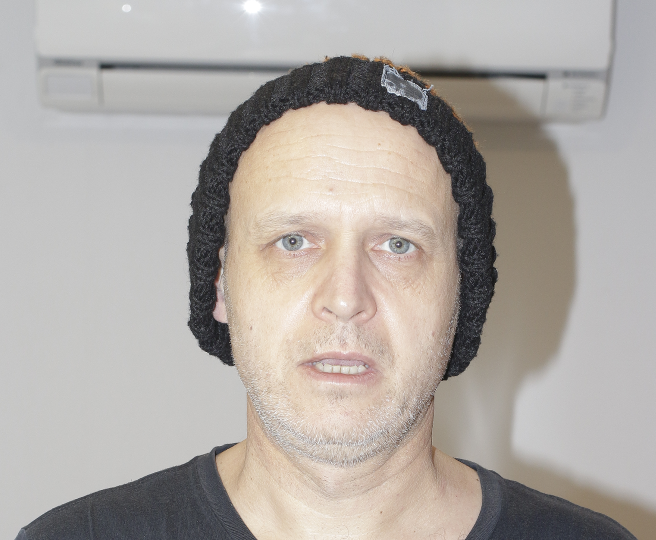I don’t hate socialists. Some of my best friends are socialists. The socialist democratic style of governance we currently live under is just part of the natural progression towards a more mentally healthy and free society. The population of the world has almost completely rejected monarchies now, and governments are going to be next. Don’t be afraid. Embrace the positive changes where you see them. No one here is going to try forcing you to start running your own lives or anything. The change I want to see cannot be brought about that way. If I had aspirations of violently overthrowing the total drop kicks currently in power it would only mean I had delusions of being the next total drop kick. And being voted into power on my hobby horse with a saviour complex after making promises I’m not even expected to keep isn’t a dream of mine either. So don’t worry about me. I’m not a threat. I’m just not voting.
I’m not voting because this is what I see happening. The divisions we create through our glorification of representative politics are going be left behind. Splitting and pitting the population against itself is going to seem stupid and go out of fashion. The next step from there towards better living is going to be the utilisation of direct democracy. Political puppets will no longer be believed in, so “the people” will get to vote on whichever separate issue they wish to instead of getting to vote for their choice of winning personality every three years as with the previous system. Under direct democracy minorities still get railroaded however, because decisions are still made by majority rule.
After that comes decentralisation, where communities decide for themselves how to run their affairs – working not in competition, but with appreciation for and recognition of each other. Trading or not trading freely without having to pay a tithe to a gluttonous central vacuum. Smaller groups have the capability of being more efficient and have more chance of reaching consensus. The democracy wars will be over because people are looking to solve problems by discussing them rationally and reaching agreements seriously without wasting time and resources on huge marketing campaigns. Problems that can’t find resolution will be understood as not being important enough for any decision to have been made at that time. This is a non-hierarchical system that understands the difference between being an authority on a subject, and having authority over subjects. Where leadership skills and gaining proficiency in a discipline are respected right up until they’re used as reasons to justify someone’s superiority complex.
Individuals seeking to achieve dominance over others will be understood to be showing signs of emotional insecurity and mental unwellness which will be addressed with the appropriate level of care and support. Effective strategies for rejecting that antisocial behaviour without falling prey to it oneself will be become more ingrained as our appreciation for personal responsibility increases. People will be able to be as different as they like (without making others feel insecure and defensive) once the ultimate transgression of assuming power over another has finally become socially unacceptable.
This might sound like hopeful idealism and wishful thinking to you. And I don’t necessarily know that it isn’t. I’m not super confident. We might all be too emotionally crippled to ever get it together. But some people have to actually say these things to help the chances of them happening. That’s how idealism works. We can’t work out how to get where were going if we don’t know where that is. And the movement towards this ideal is visibly happening. Dickensian times were not so long ago. They were pretty awful and resulted in socialism being invented. So no, I don’t hate socialists. I can understand what socialism was an answer to. But the days of ganging up to force our precious opinions and personal agendas on others being considered an acceptable manner in which to conduct ourselves are numbered.
So if you think you need to be forcibly controlled or want to forcibly control other people I want to ask you, what’s up? Everything okay at home? Who hurt you so bad you became damaged enough to believe either one of those two things was a good idea? Let’s go over here and investigate the deficit. Let’s see if we can’t find a more constructive and assertive way to deal with the pain you are obviously in. Your suffering is apparent, but everything is going to be alright. It’s okay to be insecure, but there are ways to change that. You do have to want that change for yourself though. Help is available, but it’s important that you know you’re the one who has to do the hard work. Nobody else can do it for you. How do you feel about that? Don’t answer in a hurry. Just sit with it for a few minutes. I’ll put the jug on.

